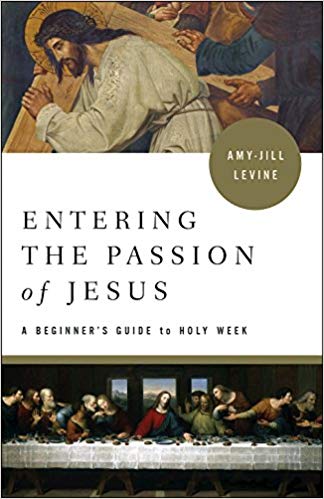Q. Throughout this study the theme of risk comes up, in the title of each chapter. And at the end of the study you remind “Entering the Passion means risk-taking; it means facing our fears, our failures, and our faults, and addressing them. Whom have we betrayed? Denied? Condemned” (p. 142). It seems to me that one way to draw a parallel with that uncomfortable last supper meal would be to ask the question— Why do so many people wish to avoid going to Thanksgiving dinner with one’s closest relatives? Why is that often awkward or uncomfortable? Is it because the people who know us best, best know our flaws and failures, especially in younger life. Jesus knows this about his inner circle, he knows they will deny, betray and even abandon him, and yet he tells them he is still going to serve them, even in his death. There is something profound going on at that last supper, even if the disciples don’t understand it until much later. As you say in the book, one of the constant themes of Jesus’ ministry is servant leadership (and no that’s not an oxymoron like the term public servant has become). But Jesus’ humility has nothing to do with many of our modern connotations for the word humble. Jesus for example doesn’t lack self-confidence, isn’t busy putting himself down, doesn’t appeal for pity from others. If Jesus is the example of humility, then it has nothing to do with one’s negative feelings about one’s self. It is the posture of a strong person stepping down and serving others. In short the meek are not the weak nor are they Casper Milktoasts. I think Jesus would say there are many things worth sacrificing for, worth dying for, but there is nothing worth killing for. Life is too precious, and Jesus came to save us from our worst instincts and habits, and our sins. To what degree do you find Jesus an approachable and appropriate model for Jewish conduct today, and what ways not so much?
A. We Jews do not require Jesus to provide us a model for “Jewish conduct”; we have numerous exemplars from our own tradition, whether from the Tanakh, Rabbinic commentary, medieval or modern figures, or for me, my parents. Proverbs 3:18 speaks of Wisdom as a “tree of life,” and the Jewish tradition connects this verse to the Torah, so that the Torah itself, both the text and the commentaries on it, is the tree of life, a guide to how we live. This is the verse, by the way, that is sung by the congregation when the Torah is removed from the ark during a synagogue service.
In some cases, I disagree with Jesus: he is interested in relativizing and even shaking up the natal family, and I am extremely family oriented; he is not interested in promoting women to positions of authority equal to men (he’s a man of his time), and I am so interested; he is more eschatologically oriented than I am; he is interested in celibacy and I most certainly am not. Nevertheless, I find, especially in his parables, guidelines that help me live a more moral, more self-aware and responsible life.













